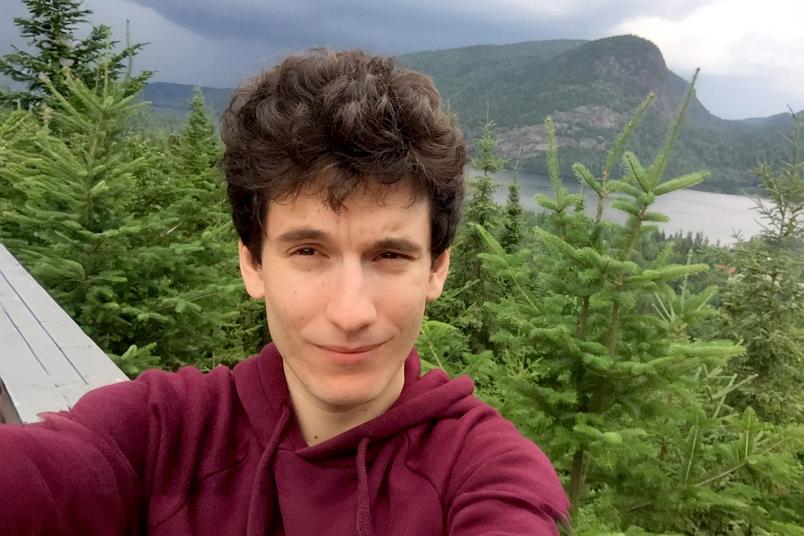
Interview
The beauty of mathematics
For Nathan Chapelier the notions and ideas involved in mathematics are beautiful. In this interview, he explains what he loves about his job and what challenges it entails.
Supported by a Humboldt-Fellowship, the mathematician Dr. Nathan Chapelier is working together with the Research Group of Prof. Dr. Christian Stump at the Faculty of Mathematics at Ruhr University Bochum, Germany. He does research at the intersection of algebraic combinatorics and representation theory.
Dr. Chapelier, where did you grow up and what did you like there most?
I grew up in Montpellier, southern France. I was mainly enjoying life by doing whatever I wanted to. For example: skateboarding, playing tennis, piano, chess, snowboarding, but nothing related to mathematics.
What are you proud of?
My ability to persevere and not giving up when things are getting complicated.
Do you remember your greatest moment of happiness in research, or have you experienced moments of frustration?
I don’t really have a greatest moment of happiness. I would say that things become easier the more I work on them, and eventually I see the best way to tackle and prove something.
I guess what I like the most is when I expect one thing and after computing a few examples (or a lot) I obtain something very far from what I first expected. Most of the time I have moments of frustration because I would like to generalize something, but sadly it fails.

I can work from almost anywhere.
On a scale of 1 to 10, the fun factor of my work is on average...
8 or 9 because: I often meet smart and interesting people, I can work from almost anywhere, as long as I have a piece of paper, a pen, and my laptop, I love mathematical challenges and playing with problem solving, the notions and ideas involved in mathematics are beautiful to me, I feel that I am participating in a long conversation that started centuries ago and that will continue for years to come.
For me, Ruhr University Bochum stands for...
... an important steppingstone for my academic career. For instance, I am free to work on the subjects that I find interesting. Thanks to the grant I have the time to be completely focused on doing research. Moreover, I can create new interesting collaborations with members of the team and benefit from their expertise.
Could you please explain what you are exploring?
I work at the intersection of two fields: algebraic combinatorics and representation theory. The latter aims at representing abstract mathematical structures by ”sending” them in new worlds where computations become possible or easier, and where hidden symmetries become visible. Algebraic combinatorics focuses on counting and expressing abstract notions via easy and explicit rules. Most of the time my questions come from representation theory but I solve them, if I manage to do so, by using tools developed in algebraic combinatorics.